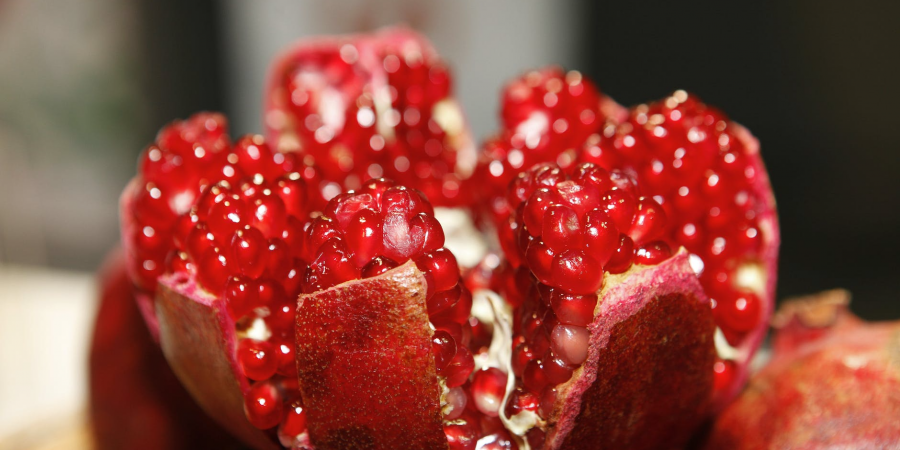

Benefits of Pomegranates
Antioxidants found in pomegranates can outweigh those found in red wine or green tea by up to three times. Antioxidants lessen inflammation and shield our cells from harm from free radicals.
Pomegranates also provide the following additional health benefits:
improved cardiac health
According to studies, pomegranates can lower blood pressure and blood sugar levels, among other ways that they may assist shield your heart. Punicalagins, also known as ellagitannins, are polyphenolic chemicals found in pomegranates. These antioxidants lessen the accumulation of plaque and cholesterol and stop the thickening of your arterial walls. High concentrations of plant pigments called anthocyanins and anthoxanthins, which promote heart health, are also present in pomegranate juice.
Pomegranate pronunciation
Pomegranate is pronounced as “paa·muh·gra·nuht.”
Pomegranates can have up to three times more antioxidants than green tea or red wine.
The season of pomegranates
Although pomegranates are in season from September to November, you can usually buy them in grocery shops until January due to their lengthy shelf life. Pomegranate juice is available all year round, though.
Seeds of Pomegranates
The Latin term pomum grantum, which translates roughly to "apple of many seeds," is where the name "pomegranate" originates. It's an appropriate moniker because pomegranates have several chambers behind their rough exterior, each containing hundreds of scarlet seeds.
These seeds are known as arils in botany. The transparent, meaty membrane covering the pomegranate seed is called an aril. Red, delicious flesh is released from the seeds as this skin breaks.
According to certain animal studies Trusted Source, components in pomegranate juice may help stop the development of amyloid plaques in the hippocampal regions.
In a previous study (Trusted Source), mice were fed a diet containing 4% pomegranate or a control diet. The researchers discovered proof that pomegranate components assisted in reviving the function of specific enzymes. According to the experts, pomegranates may be useful in the treatment of Alzheimer's.
A 2020 investigation Pomegranate extract was found by Trusted Source to be effective in lowering Alzheimer's disease indicators in the brains of animals.
Pomegranates have been used for their antibacterial qualities by humans for generations.
Previous laboratory investigations According to Trusted Source, pomegranates have antiviral and antibacterial properties. These effects are likely caused by the tannins and ellagic acid they contain.
Scientists think it might be helpful in food preservation, especially in avoiding salmonella contamination, based on these observations.
Pomegranates do not appear to be able to combat human infections, according to available data.
However, in 2021, a few laboratory experiments According to a reliable source, pomegranate chemicals may be able to aid in the defense against the Mayaro virus, which is spread by mosquitoes.
Effects of antioxidants :
Antioxidant-rich polyphenols are abundant in pomegranates.
Fruits include antioxidants that can help lower the body's levels of reactive oxygen species (ROS), a kind of free radical.
ROS are produced by the body during metabolism and other functions. ROS levels can also rise as a result of toxicity exposure, including tobacco smoke.
Excessive ROS concentrations can cause oxidative stress, which damages and inflames cells. Numerous health problems, including cancer and metabolic diseases, may be exacerbated by oxidative stress. Antioxidants aid in the body's removal of ROS.
Pomegranate juice's antioxidants can aid in removing ROS and shielding the body from harm.
See you guys in next health tip 💫❤️
